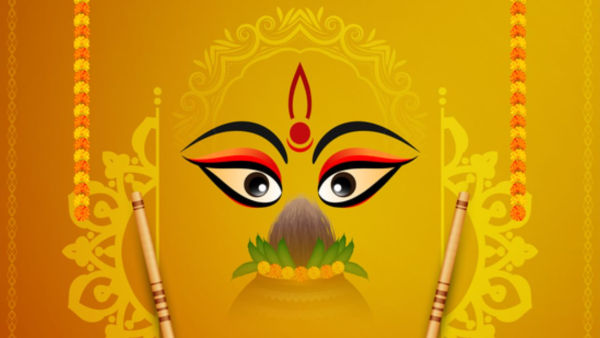
Navratri has special significance in Hinduism. This festival is celebrated four times every year, two of which are secret and two direct Navratri. Navratri, which comes in the month of Chaitra and Ashwin, is called direct Navratri. Chaitra Navratri begins according to the Hindu calendar from the Pratipada date of the Shukla Paksha of Chaitra month. From this day, Hindu New Year is also considered to be the beginning. According to religious belief, Maa Durga is pleased by establishing unbroken light and urn in auspicious time during Navratri and makes her grace to her devotees.
According to the Vedic almanac, the auspicious time for Ghatasthapana on the first day of Chaitra Navratri will be from 6.13 am to 10:12 pm, which will give the devotees a total of 4 hours 8 minutes. Apart from this, Abhijeet Muhurta will be from 12 to 1 minute to 12 to 50 minutes, in which the devotees will get a total of 50 minutes. Devotees can do Ghatasthapana during this time.
Following are some essential ingredients for Navratri Puja:
1. Cotton/Light
2. Incense, ghee and lamp
3. Flowers, Durva, Panch Pallava
4. 5 types of fruits
5. Paan leaf, cloves, cardamom
6. Akshat, betel nut, coconut, panchmeva
7. Nutmeg, barley, kalava
8. Mata's red chunari, red clothes
9. Mother
10. Grocery
11. Red -colored posture
12. Earthen pot
On the first day of Chaitra Navratri, for the installation of Kalash, first clean the house and take a bath. After this, make a swastika on both sides at the main entrance of the house and pour a toran with mango or Ashoka leaves. Then place the idol or picture of Maa Durga on a wooden post, along with the idol of Ganesha. Now grow barley in an earthen pot and fill water in a lotus and add a little axis to it. Then put mango leaves on it and keep a coconut with jatta. After this, offer the puja material while chanting the mantras. Do not forget to offer the goods of the mother's decoration in the puja. Finally, light a lamp of ghee and perform aarti.
Disclaimer: The information given in this news is based on religious beliefs. Janabhavana Times does not confirm this.